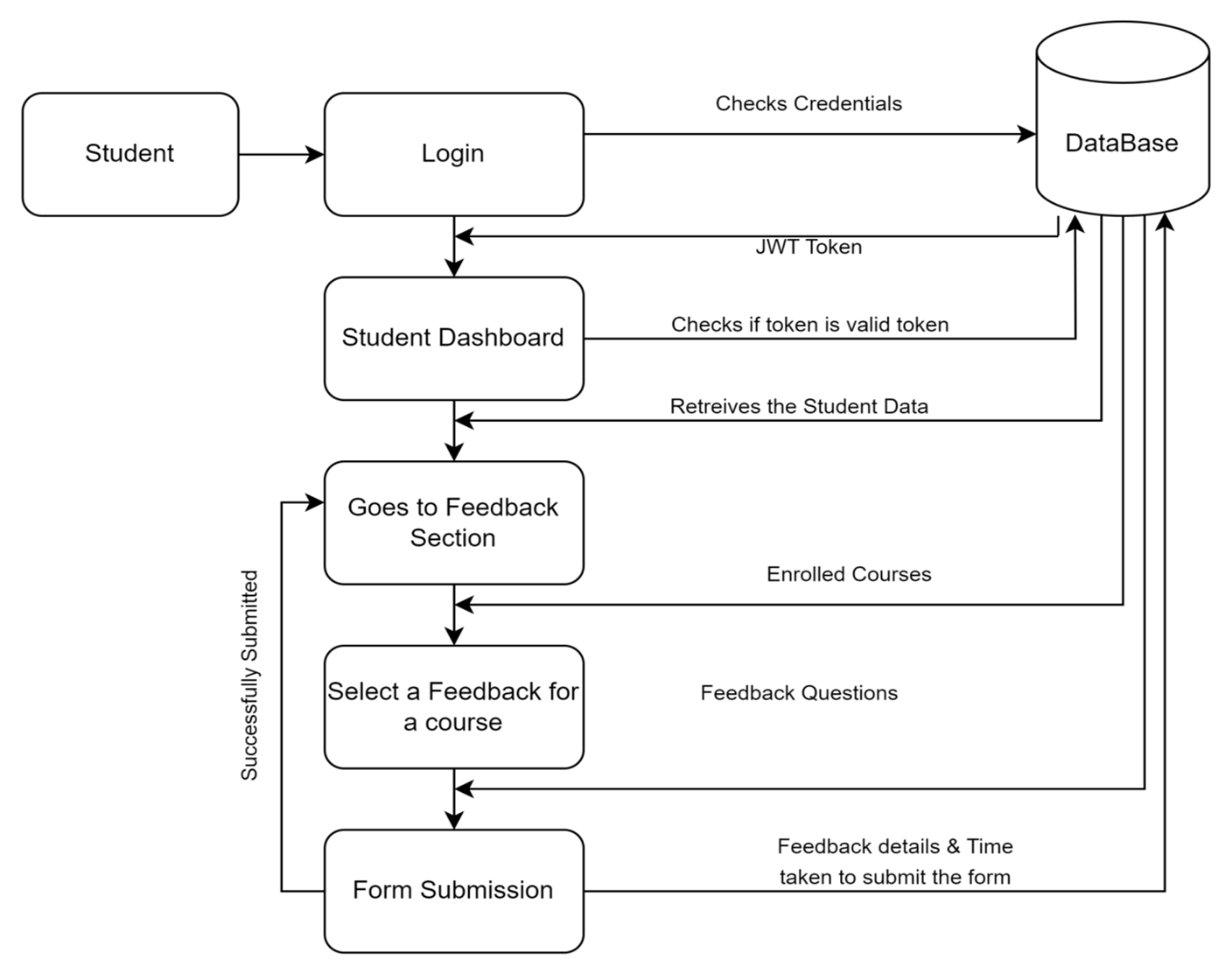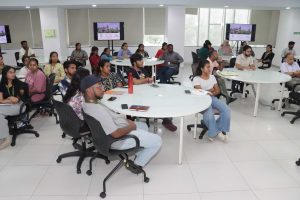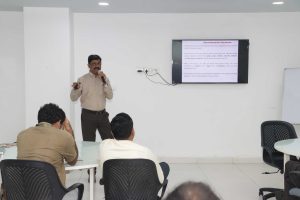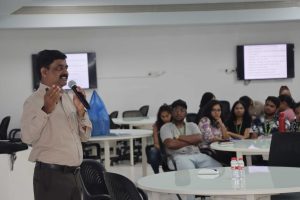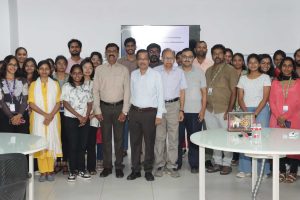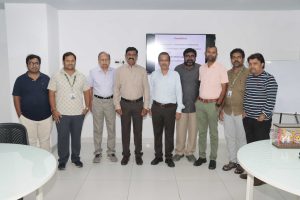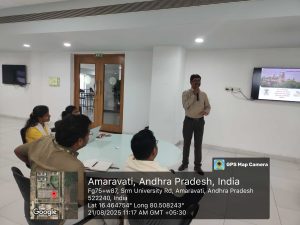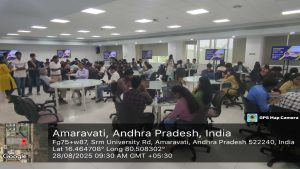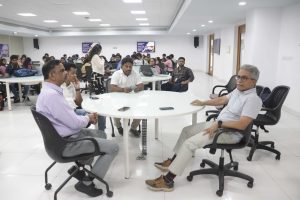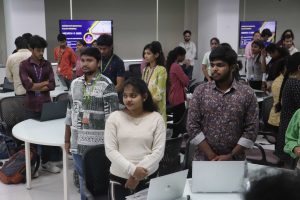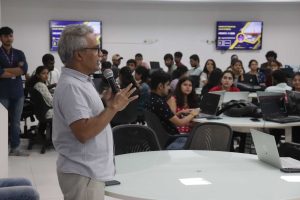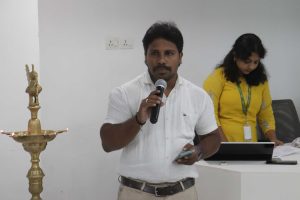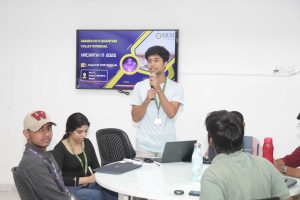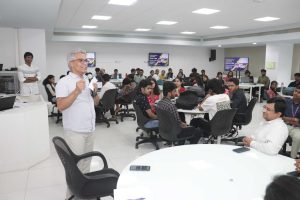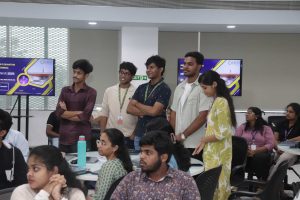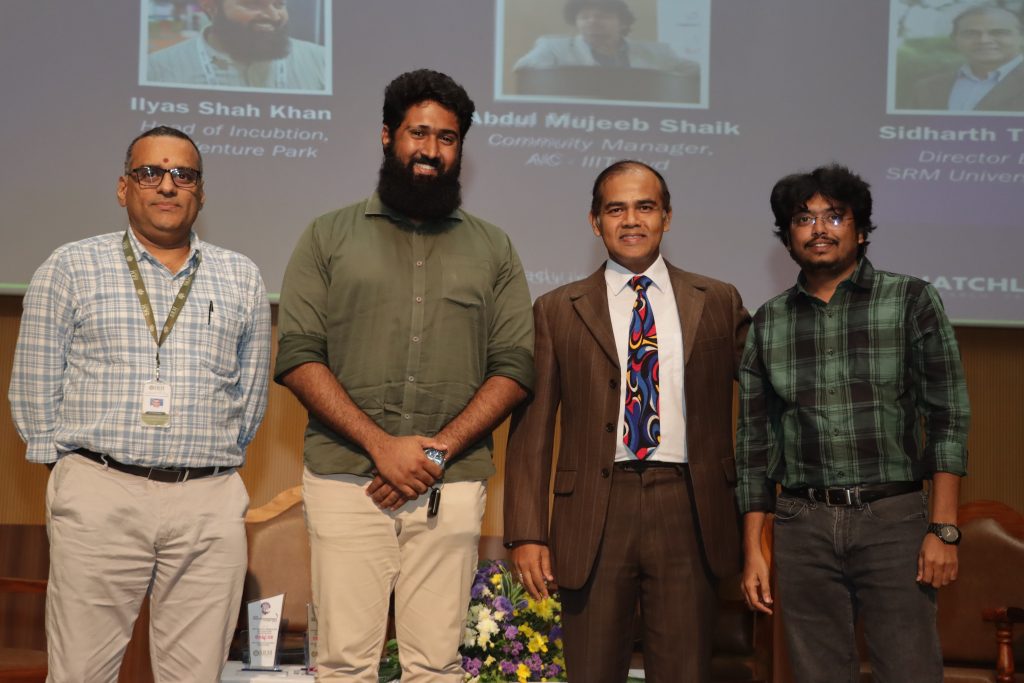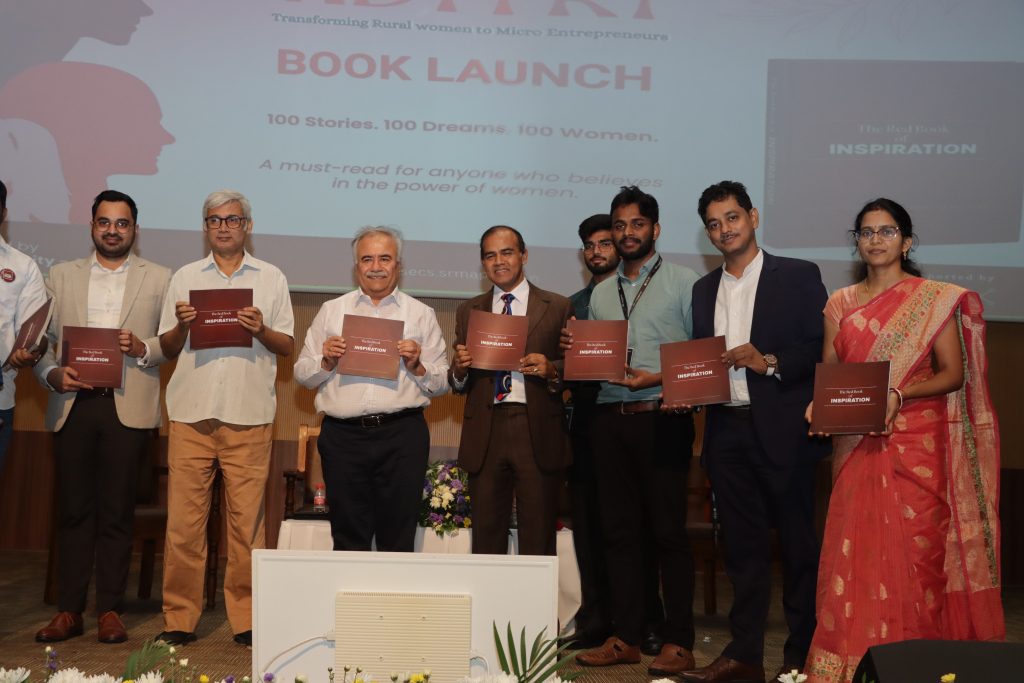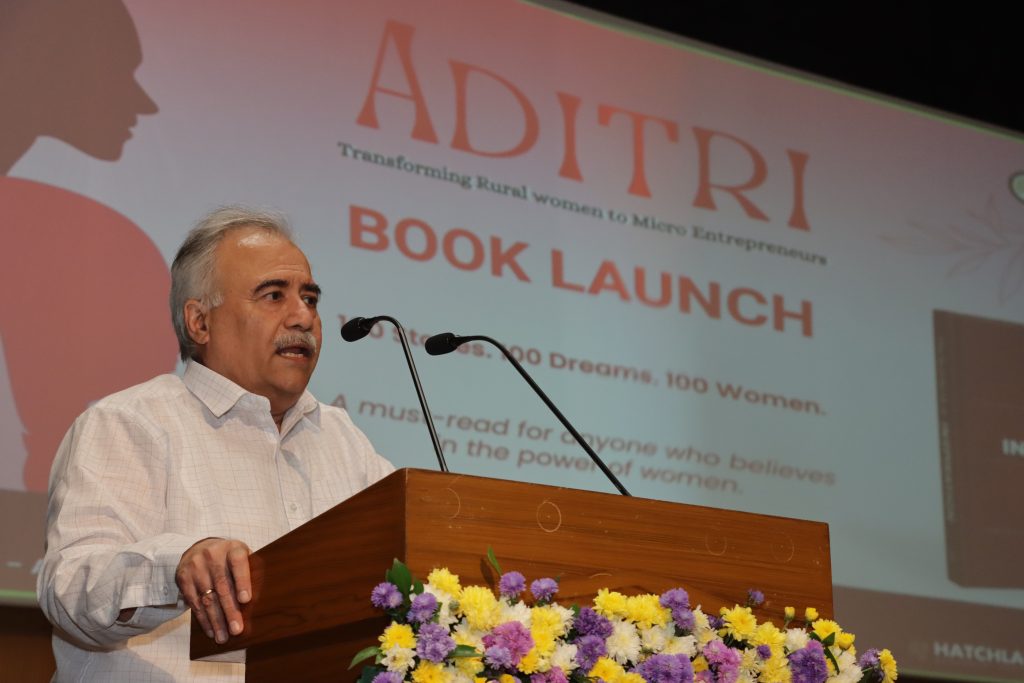- Dr Lakshmana Rao and Team on Financial Access and Sustainable Development August 31, 2025
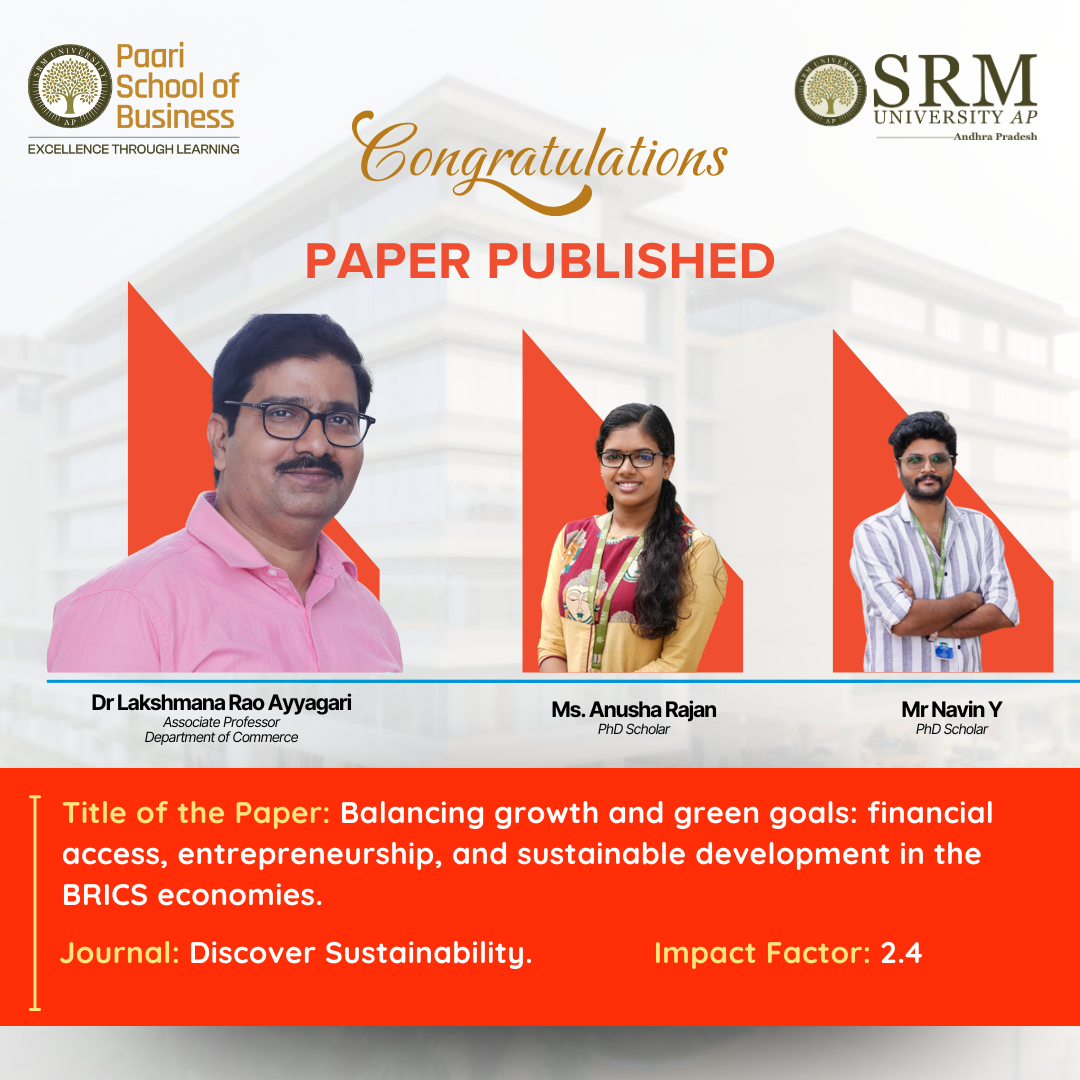 Financial access acts as both a catalyst and a challenge in today’s rapidly evolving economies. The research article “Balancing Growth and Green Goals: Financial Access, Entrepreneurship, and Sustainable Development in the BRICS Economies” by Associate Professor Dr Lakshmana Rao Ayyagari and his research scholars investigates this delicate balance between economic ambition and environmental responsibility. By applying robust PLS-SEM analysis over the period 2000-2023, the study conducted by the team at SRM AP uncovers the paradox of finance: it fuels entrepreneurship and development, while simultaneously straining sustainability goals.
Financial access acts as both a catalyst and a challenge in today’s rapidly evolving economies. The research article “Balancing Growth and Green Goals: Financial Access, Entrepreneurship, and Sustainable Development in the BRICS Economies” by Associate Professor Dr Lakshmana Rao Ayyagari and his research scholars investigates this delicate balance between economic ambition and environmental responsibility. By applying robust PLS-SEM analysis over the period 2000-2023, the study conducted by the team at SRM AP uncovers the paradox of finance: it fuels entrepreneurship and development, while simultaneously straining sustainability goals.The findings present a timely call for reimagining financial frameworks that not only strengthen economic systems but also safeguard ecological balance. The research offers actionable insights for policymakers, financial institutions, and communities- pointing towards a future where financial access empowers entrepreneurs without compromising green development.
Abstract
Financial access is a cornerstone of entrepreneurship and a key enabler of economic development. This study examines the dual role of financial systems in promoting entrepreneurial growth and sustainable development across BRICS nations (2000–2023). Using robust PLS-SEM analysis, the research reveals that while financial access drives business formation and economic resilience, it also poses ecological challenges through resource overuse and pollution. The findings highlight a paradox: the same financial mechanisms that foster progress can strain environmental sustainability. The study proposes actionable strategies to align finance with green development goals.
Explanation in Layperson’s Terms
Imagine giving people better access to banks and loans- it helps them start businesses and grow the economy. But, if those businesses use too many natural resources or pollute the environment, growth becomes harmful. This research looks at how countries like Brazil, Russia, India, China, and South Africa (BRICS) can support entrepreneurs without hurting the planet. The goal is to help governments, banks, and businesses grow responsibly by making sure financial tools support both money-making and environmental care.
Practical Implementation of the Research
- Policy Impact: Informs BRICS governments to introduce green credit quotas, eco-tax incentives, and sustainability assessments in funding policies.
- Financial Sector Reform: Encourages banks to incorporate environmental risks into lending practices.
- Community Empowerment: Highlights the importance of inclusive entrepreneurship programs, especially for rural and marginalized communities.
- Sustainability Education: Provides a foundation for integrating sustainability into entrepreneurship curricula and public discourse.
Future Research Plans
- Explore the role of blockchain and AI in promoting transparent, sustainable financial systems.
- Investigate gender and social equity in sustainable entrepreneurship ecosystems.
- Conduct comparative studies on green finance policy innovations beyond BRICS (e.g., ASEAN or African Union).
- Develop longitudinal, mixed-methods frameworks to assess cultural, institutional, and digital factors in sustainability transitions.
- Expert Talk on Marine-Based Bioactive Compounds August 31, 2025
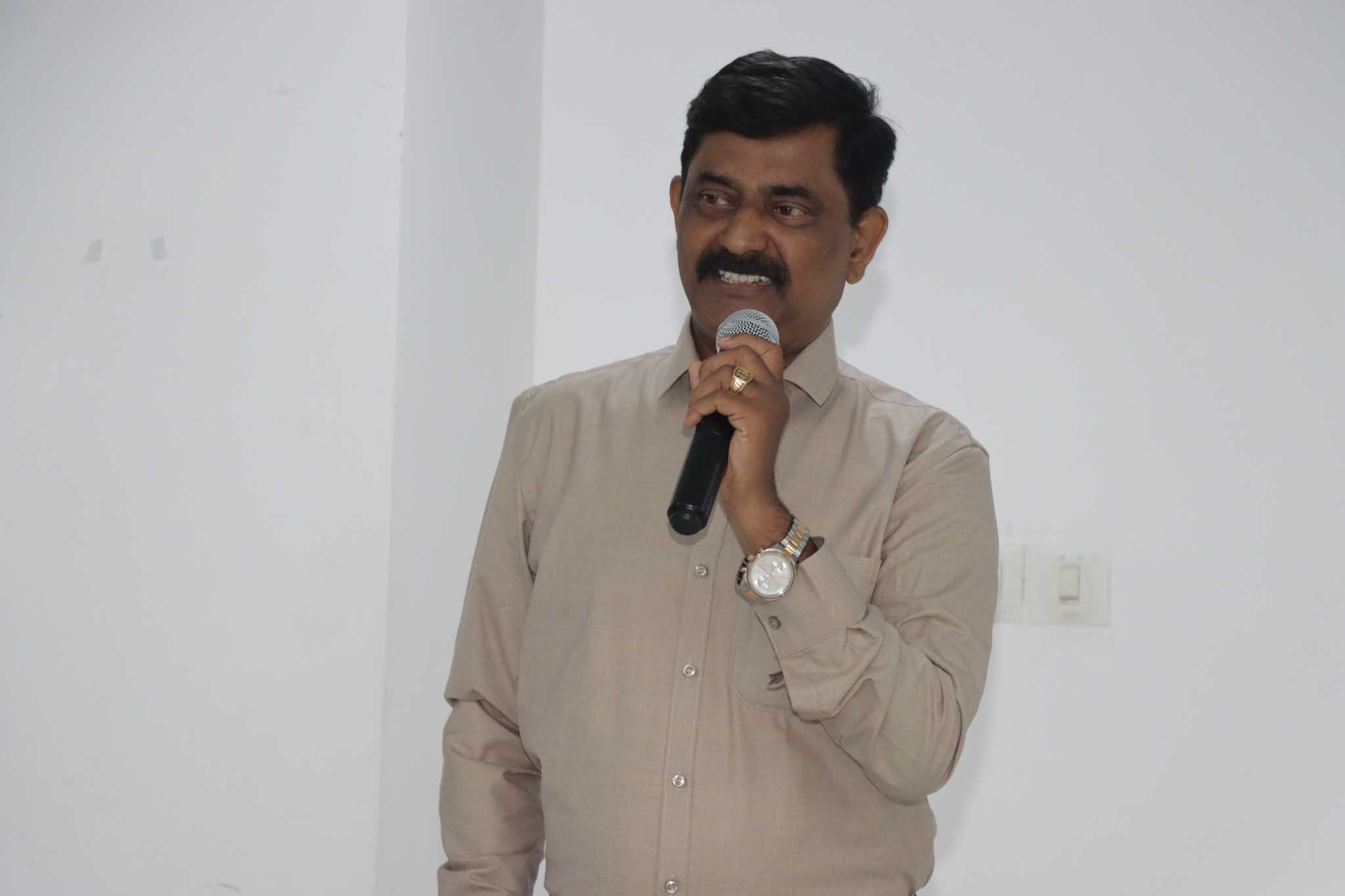
The Department of Biological Sciences, School of Engineering and Sciences (SEAS) organised an Expert Talk on the theme “Exploring Marine-Based Bioactive Compounds for Biomedical Applications”. The distinguished lecture was delivered by Prof. Dr C Arulvasu, Professor and Head, Department of Zoology, University of Madras. The session was hosted by Prof. Jayaseelan Murugaiyan.
In his address, Prof. Dr Arulvasu provided valuable insights into the biomedical potential of marine-derived bioactive compounds, underscoring their emerging significance in combating critical health challenges such as cancer, microbial infections, inflammation, and tissue damage. He explained that bioactive substances from marine organisms remain largely underexplored for therapeutic applications, yet hold immense promise for future biomedical innovations.
Drawing on his three decades of research experience, Prof. Dr Arulvasu shared highlights of his pioneering work on toxins derived from various marine organisms, showcasing their potential applications in biomedical science. He emphasised the importance of adopting a multidisciplinary approach, integrating biology, chemistry, nanotechnology, and bioinformatics, to unlock and harness the therapeutic value of marine bioresources effectively.
The interactive session fostered meaningful engagement, where participants gained a deeper understanding of how marine bioactives represent the next frontier in biomedicine.
Concluding the lecture, Prof. Dr Arulvasu invited students and researchers of the University to collaborate with him in advancing this promising field of study, emphasising the transformative role that marine bioactives can play in shaping future biomedical research and applications.
Continue reading → - Internal Hackathon for AQVH-2025 August 31, 2025
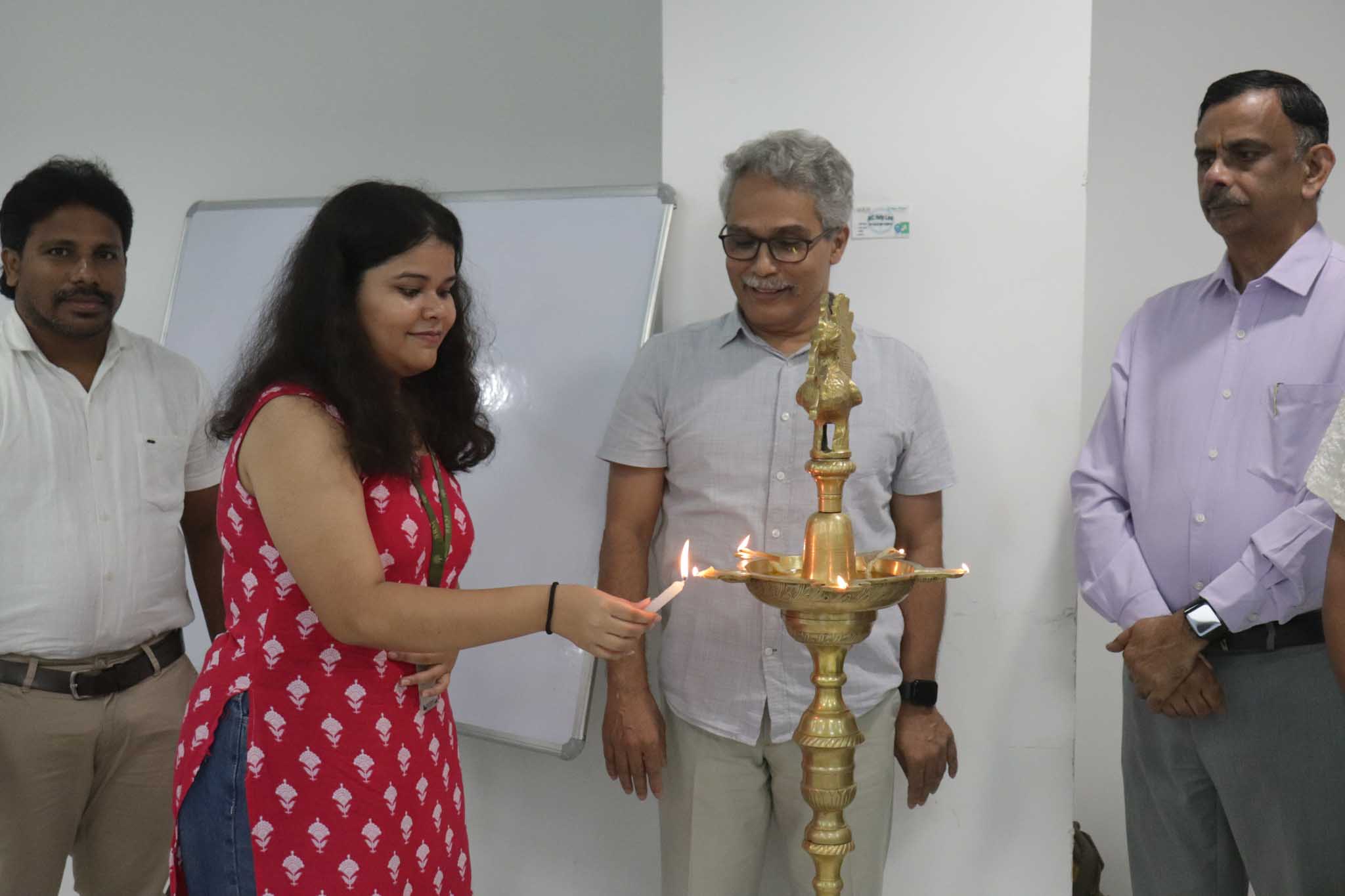
The Internal Hackathon 2025 was successfully conducted at SRM University-AP, Amaravati, serving as a platform to identify and select two exceptional teams for the upcoming Amaravati Quantum Valley Hackathon 2025. The event brought together some of the brightest young innovators, who showcased their talent, creativity, and problem-solving skills. With 22 teams, each consisting of seven members, the competition was intense, inspiring participants to brainstorm, build, and push the boundaries of innovation.
At the end of this thrilling challenge, Team APX Nova and Team Navacharak emerged as the top two winners, securing their place in the prestigious Amaravati Quantum Valley Hackathon 2025. Their projects stood out for their originality, feasibility, and potential impact, reflecting the growing culture of research, innovation, and entrepreneurship at SRM University-AP.
The event was graced by Prof. C V Tomy, Dean-SEAS, as the Chief Guest, and Dr Jatindra Kumar Dash, Associate Dean-SEAS (Academic Operations and Graduate Outcomes), as the Guest of Honour. Dr M Mahesh Kumar served as the Co-convenor, while Mr Pankaj Belwariar, Director Communications, along with other distinguished dignitaries, added immense value to this inspiring occasion.
Speaking at the event, Prof. C V Tomy said, “The journey of computing has taken us from CPU to GPU, and now towards QPU- the Quantum Processing Unit. Quantum computers are not just faster machines; they represent a paradigm shift, enabling us to solve problems that were once unimaginable. Platforms like this hackathon prepare our students to embrace and contribute to this technological revolution.”
The Internal Hackathon was not just a competition- it was a celebration of innovation, teamwork, and the limitless potential of SRM University-AP students. Events like this inspire young minds to think beyond conventional boundaries, encourage collaboration across disciplines, and nurture future leaders who will drive advancements in science, technology, and society.
Continue reading → - SRM AP Hosts Global Social Entrepreneurship & CSR Summit 2025 August 31, 2025
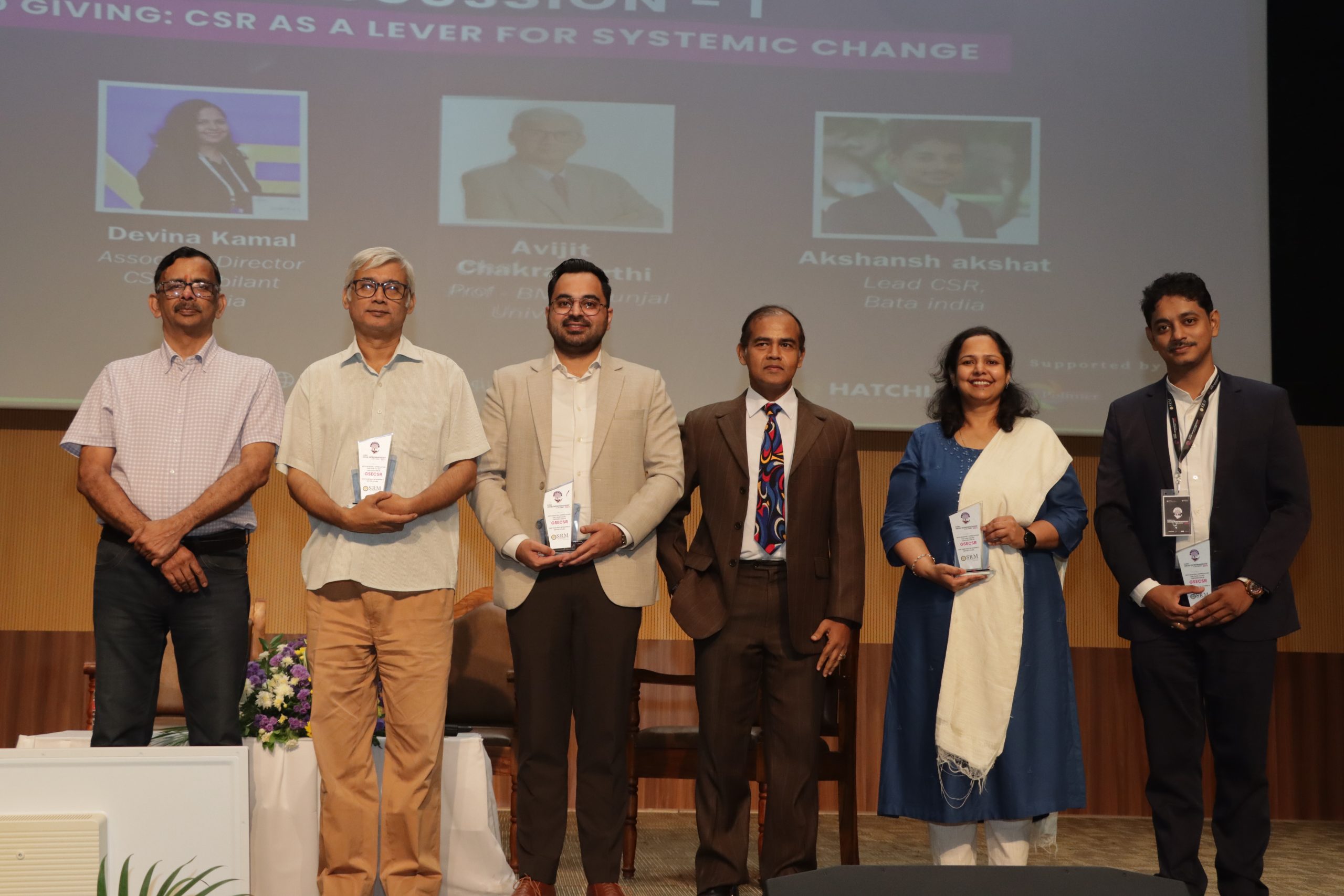 The University, through its Centre for Social Entrepreneurship, successfully hosted the Global Social Entrepreneurship & CSR Summit 2025 on August 30, 2025. The day-long summit brought together eminent leaders, innovators, and change-makers to deliberate on the transformative role of Corporate Social Responsibility (CSR) and social entrepreneurship in building sustainable communities.
The University, through its Centre for Social Entrepreneurship, successfully hosted the Global Social Entrepreneurship & CSR Summit 2025 on August 30, 2025. The day-long summit brought together eminent leaders, innovators, and change-makers to deliberate on the transformative role of Corporate Social Responsibility (CSR) and social entrepreneurship in building sustainable communities.The context to the grand summit was set by Prof. Sidharth Tripathy, Director-Entrepreneurship & Innovation of SRM AP as he highlighted that this summit is going to redefine the language of social impact from ‘beneficiaries’ to ‘venture builders’, from ‘compliance’ to ‘conscience’ led CSR’ and from ‘nice-to-do social projects’ to ‘need-to-do systemic movements.
The summit featured four high-impact panel discussions addressing key themes in the field of social innovation and inclusive development.
Panel Discussion 1: Beyond Giving- CSR as a Lever for Systemic Change
Industry leaders such as Ayush Bagga (Founder & CEO, IAMpact), Devina Kamal (Associate Director CSR, Jubilant Ingrevia), Prof. Avijit Chakravarthi (Professor at BML Munjal University), and Akshansh Akshat (Lead CSR, Bata India) explored how CSR can move beyond traditional philanthropy to become a powerful tool for entrepreneurial transformation and long-term societal impact.Panel Discussion 2: HEI as Impact Launchpads-Focusing on the role of Higher Education Institutions in nurturing entrepreneurship and social ventures, this panel saw thought-provoking insights from, Ilyas Shah Khan (Head of Incubation, Ed-Venture Park), Abdul Mujeeb Shaik (Community Manager, AIC-IIIT Hyderabad), and was moderated by Prof. Sidharth Tripathy (Director Entrepreneurship and Innovation, SRM University-AP).
Panel Discussion 3: Building Impact Ecosystems- Partnerships that Power Change Highlighting the importance of collaborations, Pranay Kumar Nalla (Head- Govt Innovation & Partnerships, TGIC), Sahithi Divi (Sr. Consultant, ST & RD, Govt. of AP), and Dileep Podili (Director- Innovation & Strategy- Impact Hub) shared how multi-stakeholder partnerships can accelerate systemic change and foster scalable solutions.
Panel Discussion 4: Agents of Change- Empowering Youth for Inclusive Entrepreneurship Youth-driven innovation and inclusivity were central to this session. Karthik Nagapuri (Founder, Evolvex), and Kilaru Naga Sravan (Founder, Politics for Impact) inspired participants with their journeys of driving change through entrepreneurial ventures and advocacy.
Adding to the spirit of the summit, Mr Sidhartha Tripathi narrated the story of SRM University-AP’s flagship CSR initiative- Aditri, which focuses on empowering rural women to become micro-entrepreneurs. Sharing the impact of the initiative, he said,“Through Aditri, we have been able to reach over 2,500 women through field visits, engage more than 1,400 women via baseline surveys, train 570 participants in intensive entrepreneurial bootcamps, and support the shaping of over 100 venture ideas into sustainable enterprises. This journey is a testament to the transformative power of social innovation and the resilience of rural women.”
In line with this impact, the summit also witnessed the launch of ‘The Red Book of Inspiration’ about Aditri- Transforming Rural Women to Micro Entrepreneurs by Vice Chancellor of SRM University-AP Prof. Manoj K Arora. He said, “The book consists of the story of the metamorphosis of rural women into microentrepreneurs in just 10 months time. It brings 100 inspiring stories of 100 women with 100 dreams, reflecting resilience and courage in building sustainable livelihoods.” As described during the launch, the book is “a must-read for anyone who believes in the power of women.”
Towards the conclusion of the event, the Paper Presentation track of the Global Social Entrepreneurship & CSR Summit 2025 recognised outstanding contributions. Mr. Vaibhav from VIT-AP secured the first position and was awarded a cash prize of ₹20,000. Mr. Sundhar Singh from SRM University-AP received the second prize of ₹15,000, while Mr. Mahendra Kumar from Half-Brain Technologies bagged the third position with a prize of ₹7,500.
The event provided a vibrant platform for dialogue, knowledge sharing, and collaboration between academia, industry, and social innovators.The Global Social Entrepreneurship & CSR Summit 2025 not only showcased the power of partnerships and innovation but also underscored the urgent need for collective action towards sustainable development.
Continue reading → - Patent on Feedback System for Faculty Insights August 29, 2025
The faculties from the Department of Computer Scinece and Engineering, Dr Sasmita Rout, Dr Hema Kumar Yarnagula, and Dr Debabrata Senapati, along with their students and scholars, Mr Muthyala Sai Venkat, Mr Mukku Suhas, Mr Seelam Avinash Reddy, and Mr PV Manikanteswara Rao Baddi, introduce an innovative system that gathers student feedback on their learning experiences through questionnaires. By refining this feedback using specific metrics, the system delivers a more accurate assessment of faculty performance, ultimately enhancing teaching methods and creating a more engaging educational environment for students.
Brief Abstract of the Research
In the realm of higher education, student feedback is crucial and offers invaluable insights into the effectiveness of teaching methods. In addition, it helps faculty members by illuminating how their instructional practices affect student learning outcomes. The student feedback in academic settings empowers educators to adapt and refine their teaching strategies by identifying strengths and areas for improvement. Thus, ultimately creates a more engaging and impactful learning experience for the students. This article introduces a next-generation weighted student feedback system that collects responses using a set of questionnaires, referred to as the Conventional Feedback Score (CFS), from students about their learning experience and course effectiveness. The proposed system then refines the students’ responses based on three key metrics to provide a more accurate, balanced, and reliable assessment of the faculty performance. Our experimental results show that the proposed weighted feedback system provides a more accurate, reliable, and robust feedback score compared to CFS.
Explanation in Layperson’s Terms
The proposed feedback system is designed for use in academic settings such as colleges, universities, and online learning platforms seeking honest student evaluations. Any higher educational institution that prioritises quality teaching and fair assessments can benefit from the proposed system. Its key advantage lies in enhancing feedback reliability by minimising incorrect or irrelevant responses.
Practical Implementation and Social Implications associated with the Research
Any higher educational institution with an intent to prioritise quality teaching and fair assessments can benefit from the proposed system. Its key advantage lies in enhancing feedback reliability by minimising incorrect or irrelevant responses. This allows the institute administrators to make more informed decisions regarding faculty performance and instructional improvements. The system integrates easily with existing feedback mechanisms, enabling quick and efficient adoption. Primarily, this invention serves academic institutions aiming to collect accurate and fair student feedback for faculty evaluation.Collaborations
In-house work with collaborations from IIT Guwahati and IIT Kharagpur
Future Research Plans
Plan to expanding the research and tackle challenges in areas such as real-time scheduling, embedded systems, and cyber-physical systems, with the aim of developing innovative solutions that address critical issues in these domains.
Continue reading →